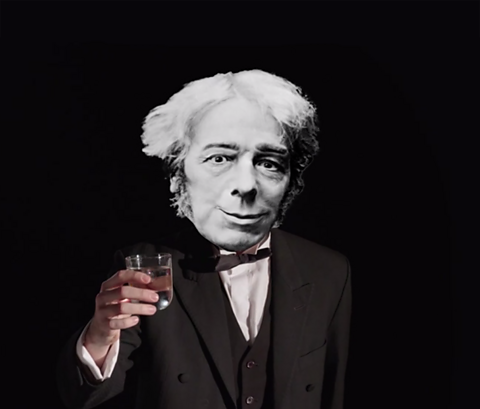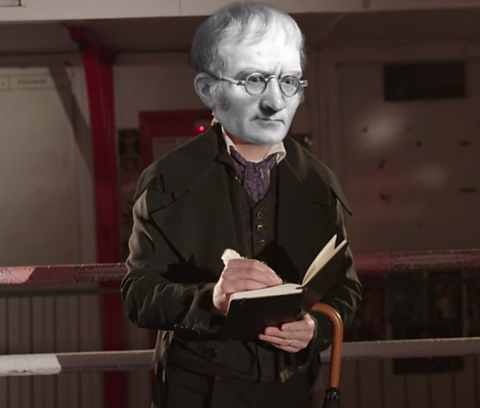Michael Faraday and John Dalton: What did they achieve for science?
Michael Faraday and John Dalton made important breakthroughs in science, including many discoveries that are vital to our lives today.
How did they do this? It was their ability to "think like scientists"…
Find out what happens when Michael Faraday and John Dalton go head-to-head to decide who is the greatest scientist.
Michael Faraday

Michael Faraday was born in London in 1791. As a result of his hard work, Faraday:
Worked out how to make electric motors, which use electricity to make things move.
Discovered that moving a magnet through a coil of wire makes an electric current.
Found out how to turn certain gases (for example chlorine) into liquid.
We benefit from Faraday’s discoveries every day. Electricity powers many everyday appliances, electric motors are important components for cars and his work on gases led to the invention of the fridge.

John Dalton

John Dalton was born in 1766 in Cumbria, and worked for most of his life in Manchester. His achievements include:
Developing atomic theory. This states that everything is made up of tiny particles called atoms and that each element has its own type of atom.
Keeping detailed weather records for more than 50 years.
Writing the first ever scientific paper on colour blindness.
Dalton was hugely influential. His atomic theory now underpins the whole of modern chemistry and his work on colour blindness inspired many further studies.

New scientific discoveries
New scientific discoveries are made all the time. A discovery may start with a surprising ObservationSomething that can be seen happening. or a scientific question. The scientist may then work alone, or with others, to create a hypothesisAn idea about how something works that can be tested using experiments.. A hypothesis is a possible explanation based on limited evidence.
The scientist will then test their hypothesis. They do this by carrying out an experiment (or making observations) to collect evidence. The scientist then analyses the evidence and uses it to come up with a conclusionAn explanation of why or how something happens.
The scientist will consider the strength of the conclusion and may then tell other scientists about their findings.
Find out more about working scientifically and doing experiemnts.
Test your knowledge
Faraday vs Dalton quiz
Test your knowledge on Faraday and Dalton with this quick quiz.
Play the Atomic Labs game! gamePlay the Atomic Labs game!
Try out practical experiments in this KS3 science game.
